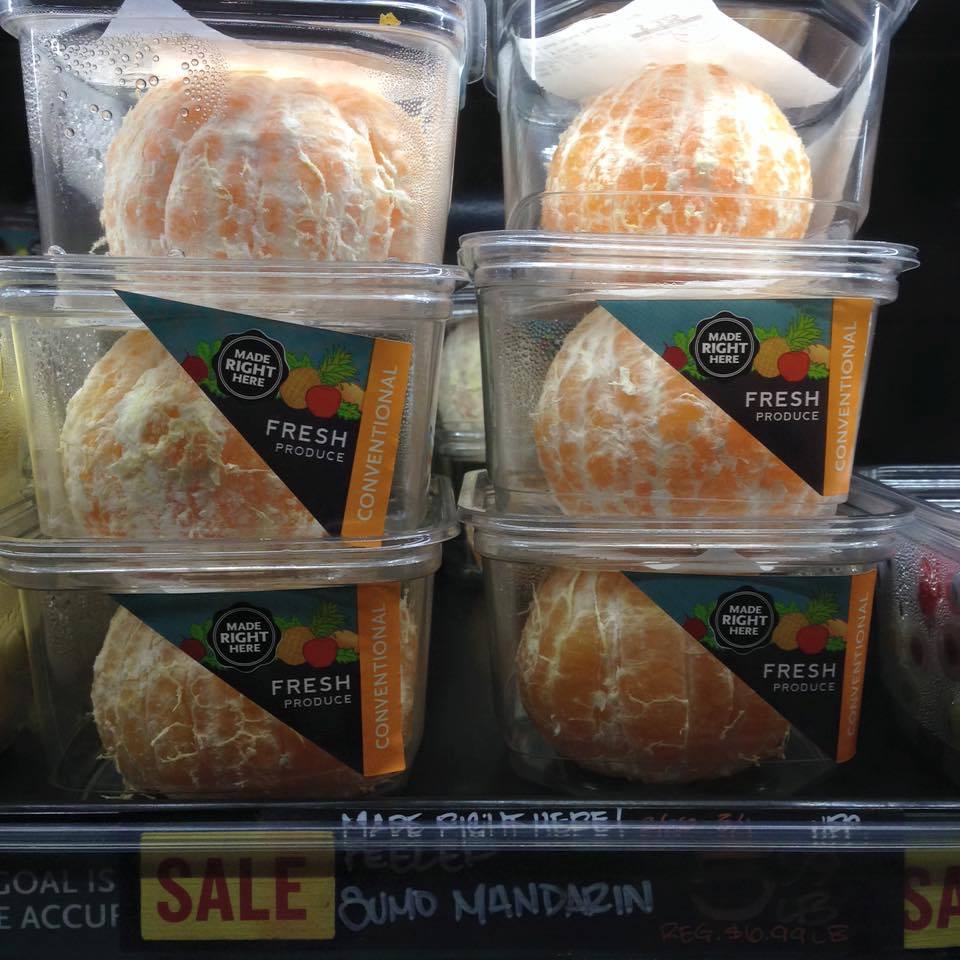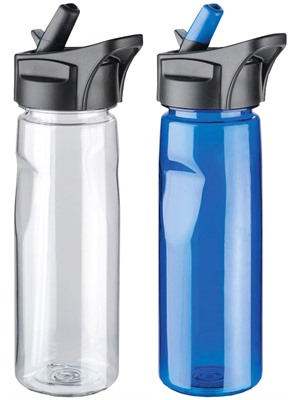A supplier for Starbucks is recalling pre-packaged breakfast sandwiches after that supplier had positive sample result on a food contact surface. While product did not test positive, a positive contact surface indicates the possibility that product could have been cross contaminated.
In assessing the risk, there are a few things to note. For one, the sandwich is shipped and stored frozen. While this will prevent growth during shipment, if the product is thawed and held for a period of days before use, there can be time for the organism to grow. As the number of organisms increases, this not only increases the chances of organisms surviving a heat treatment, but it also increases the risk of cross-contamination to other foods and food contact surfaces within the store environment as that product is handled.
These sandwich products would be heated by the store before serving, potentially lowering the chance of contamination. However, with heat-and-serve product, the heating process may not be controlled well enough or be hot enough to ensure complete destruction of the organism.
The next question will be on how good the facility's Listeria Control Program is. If the program is good and this happens to be an outlier, than this recall may be it. But if FDA finds little testing results to indicate a solid program, or they find a series of positive results with insufficient corrective action, they believe there is a higher risk and then push for additional recalls.
NBC News.com
http://www.nbcnews.com/business/business-news/sandwiches-recalled-starbucks-stores-over-listeria-concerns-n533356
Sandwiches Recalled from Starbucks Stores Over Listeria Concerns
Mar 7 2016, 2:03 pm ET
by Lucy Bayly
A food supplier has recalled pre-packaged sausage, egg, and cheddar cheese on English muffin breakfast sandwiches from Starbucks stores in Arkansas, Texas, and Oklahoma over concerns that the products may contain traces of listeria.
Tuesday, March 8, 2016
Monday, March 7, 2016
Orangegate - Packaging of Pre-Peeled Oranges
Whole Foods took some criticism for selling pre-peeled oranges in plastic packaging. A person's tweet went viral stating “If only nature would find a way to cover these oranges so we didn’t need to waste so much plastic on them.” Whole Foods quickly discontinued sale.
Not only does it create waste, but removing one of the best food safety packages around, the orange peel, the product becomes more susceptible to contamination.

Not only does it create waste, but removing one of the best food safety packages around, the orange peel, the product becomes more susceptible to contamination.

Wednesday, March 2, 2016
Moldy Sippy Cup Lids..What About Drinking Bottles?
News reports of moldy sippy cup lids have parents concerned. And rightly so. High levels of mold can lead to allergic responses in children. The issue is that liquid seeps into the areas that are hard or impossible to clean. This can be a big issue with juices or milk that have the nutrients to be able to support mold or bacterial growth. Additionally, juices can be sticky, making cleaning more difficult.Sippy cups are not the only types of cups that have multi-component lids. Many of the fancy water bottles used by adults and children have these multicomponent lids. It would be interesting to see if anyone has torn apart these lids.


Tuesday, March 1, 2016
Maytag Cheese Recall Expanded to 35 Production Lots
Maytag Dairy is expanding their cheese recall to a new total of 35 lots.
Their first recall on February 14th was for 1 lot after testing found a Listeria was found during routine testing. Then a recall announcement on February 19th, expanded the recall to 5 lots. Then on the February 26nd, the recall was expanded to 35 lots.
FDA Recall Notice
http://www.fda.gov/Safety/Recalls/ucm488124.htm
Maytag Dairy Farms Expands Voluntary Recall Of Blue Cheese Products Due To Possible Health Risk
For Immediate Release
February 26, 2016
Their first recall on February 14th was for 1 lot after testing found a Listeria was found during routine testing. Then a recall announcement on February 19th, expanded the recall to 5 lots. Then on the February 26nd, the recall was expanded to 35 lots.
FDA Recall Notice
http://www.fda.gov/Safety/Recalls/ucm488124.htm
Maytag Dairy Farms Expands Voluntary Recall Of Blue Cheese Products Due To Possible Health Risk
For Immediate Release
February 26, 2016
Friday, February 26, 2016
Update - Listeria Outbreak in Packaged Salads
In January, CDC provided an update on a Listeria outbreak associated with Dole Packaged Salad made in their Ohio facility. A update of that case was published where there are now a total of 18 people who have been infected with one death covering 9 states. There are also a reported 11 cases in Canada with 3 deaths.
Multistate Outbreak of Listeriosis Linked to Packaged Salads Produced at Springfield, Ohio Dole Processing Facility
Posted February 25, 2016 2:00 PM ET
What's New?
Three more ill people have been reported from Missouri (1) and Ohio (2), bringing the total to 18.
The most recent illness was diagnosed on January 31, 2016.
Multistate Outbreak of Listeriosis Linked to Packaged Salads Produced at Springfield, Ohio Dole Processing Facility
Posted February 25, 2016 2:00 PM ET
What's New?
Three more ill people have been reported from Missouri (1) and Ohio (2), bringing the total to 18.
The most recent illness was diagnosed on January 31, 2016.
CDC MMWR - 2014 Botulism Outbreak Associated with Farm Stand Pesto
CDC MMWR has a report on the 2014 botulism outbreak associated with pesto purchased from a farm stand. Two individual contracted the disease when sharing dinner of chicken with the tainted pesto.
In the report they found "Environmental assessment of company A identified improper acidification and pressurization practices and lack of licensure to sell canned products commercially, including products in hermetically-sealed jars......Health officials in California collected and analyzed an unopened jar of the pesto from this family member’s house. It was found to have a pH of 5.3 and water activity* of 0.965 (parameters insufficient to prevent growth of C. botulinum)."
The report goes on to state that "As the demand for locally made, ready-to-eat food increases, consumers and public health officials should be aware of the risk for botulism from improperly canned foods such as pesto sold in jars. Producers of canned foods for commercial use should ensure that they adhere to food safety regulations."
(More information on this outbreak in our 2014 report.)
CDC MMWR
http://www.cdc.gov/mmwr/volumes/65/wr/mm6507a2.htm?s_cid=mm6507a2_e
Outbreak of Foodborne Botulism Associated with Improperly Jarred Pesto — Ohio and California, 2014
In the report they found "Environmental assessment of company A identified improper acidification and pressurization practices and lack of licensure to sell canned products commercially, including products in hermetically-sealed jars......Health officials in California collected and analyzed an unopened jar of the pesto from this family member’s house. It was found to have a pH of 5.3 and water activity* of 0.965 (parameters insufficient to prevent growth of C. botulinum)."
The report goes on to state that "As the demand for locally made, ready-to-eat food increases, consumers and public health officials should be aware of the risk for botulism from improperly canned foods such as pesto sold in jars. Producers of canned foods for commercial use should ensure that they adhere to food safety regulations."
(More information on this outbreak in our 2014 report.)
CDC MMWR
http://www.cdc.gov/mmwr/volumes/65/wr/mm6507a2.htm?s_cid=mm6507a2_e
Outbreak of Foodborne Botulism Associated with Improperly Jarred Pesto — Ohio and California, 2014
FDA Reports on the Contamination of Imported Spices, but not Retail Spics...Yet
FDA published a Q and A on the safety of spices looking at the contamination rates of incoming spices. In a nutshell, the US imports spices from 79 countries, and of these, salmonella contamination was found in spices from 37 countries. The also found that "Spice shipments offered for entry into the U.S. had an overall prevalence for Salmonella of approximately 6.6 percent during the 2007 to 2009 fiscal years, about twice the average prevalence of all other imported, FDA-regulated foods"
But this is not really a thing because spices are generally treated once they arrive in the US and these were not yet treated. According to the website, "However, we noted in the study an important data gap in that we were missing key information about the level of contamination of spices at retail in the U.S. When we began conducting the risk profile, we asked the public for any data but did not receive information about contamination rates at retail. Because many imported spices are treated after entry to the U.S. to reduce contamination before they are sold to consumers, we knew that the 6.6 percent contamination rate found at the import level did not reflect what was actually reaching consumers."
Did they collect retail samples? Yes, but that data was not ready to release.
FDA Website
http://www.fda.gov/Food/FoodScienceResearch/RiskSafetyAssessment/ucm487954.htm
Questions & Answers on Improving the Safety of Spices
But this is not really a thing because spices are generally treated once they arrive in the US and these were not yet treated. According to the website, "However, we noted in the study an important data gap in that we were missing key information about the level of contamination of spices at retail in the U.S. When we began conducting the risk profile, we asked the public for any data but did not receive information about contamination rates at retail. Because many imported spices are treated after entry to the U.S. to reduce contamination before they are sold to consumers, we knew that the 6.6 percent contamination rate found at the import level did not reflect what was actually reaching consumers."
Did they collect retail samples? Yes, but that data was not ready to release.
FDA Website
http://www.fda.gov/Food/FoodScienceResearch/RiskSafetyAssessment/ucm487954.htm
Questions & Answers on Improving the Safety of Spices
Subscribe to:
Posts (Atom)
